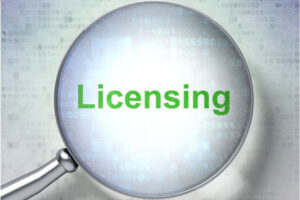After many months of attending classes, studying, and passing exams, obtaining your physician assistant (PA) license is a long-awaited milestone. However, even after reaching this significant achievement, you must still follow the rules and laws that govern your profession. Violations of those rules or laws can lead to investigations by the Texas Medical Board (TMB) and, ultimately, disciplinary action against your physician assistant license.
Any disciplinary complaint alleging a rule or law violation can have substantial negative consequences for your professional life. If you are facing such allegations, you should consult an experienced physician assistant license defense attorney. Your attorney can represent your interests from the outset of any investigation and during disciplinary proceedings by the TMB. You can benefit from legal representation throughout this process.
Investigation of Complaints Against Physician Assistants
Under 22 Tex. Admin. Code §185.20, the same complaint handling procedures for physicians generally apply to PAs. When the TMB receives a complaint about a PA, it must conduct a preliminary investigation within 45 days. If the complaint violates the standard of care, the staff member who conducts the preliminary investigation shall be a licensed Texas health care provider under 22 Tex. Admin. Code §178.5. The preliminary investigation includes a collection of the following information:
- Any history of the licensee maintained by the TMB;
- Any additional information obtained from the complainant; and
- Any response to the complaint from the licensee
After the preliminary investigation, agency staff will determine whether the complaint is jurisdictional and whether there is probable cause to justify further investigation. If the complaint is non-jurisdictional, TMB staff may refer the complaint to another agency with potential jurisdiction over the complaint as needed.
If TMB staff finds probable cause to justify further investigation, it will file the complaint with the agency and conduct an official investigation, according to 22 Tex. Admin. Code §179. The licensee must respond to all requests for information from the TMB within ten days or be subject to disciplinary action.
TMB shall complete its investigation within 180 days after filing the complaint unless there is good cause as to why the investigation could not be completed within that timeframe. However, there is no deadline for the TMB to investigate a complaint after an alleged violation occurs.
Impaired Licensees
22 Tex. Admin. Code §185.22(a) provides specific procedures that the TMB must follow if an investigation reveals probable cause to believe that a licensee cannot practice due to impairment. This section defines impairment as an inability to “practice within his field with reasonable skill and safety to patients by reason of age, illness, drunkenness, excessive use of drugs, narcotics, chemicals, or any other type of material; or as a result of any mental or physical condition.”
If the TMB finds probable cause of impairment, it shall require the licensee to undergo a mental and/or physical examination by one or more designated physicians within 30 days. If the licensee refuses to undergo the requested exam, the TMB will issue an order requiring the licensee to show cause why they should not be required to submit to the examination. A hearing will occur before a panel of TMB representatives, who will hear evidence and determine whether the examination will be required.
Under 22 Tex. Admin. Code §179.8, if the TMB has cause to believe that a licensee has used alcohol or drugs in an intemperate manner, it may offer the licensee the opportunity to participate in its program of alcohol and drug screening during the investigation. If the licensee does not agree to participate in the screening program, the TMB will expedite the investigation to allow for disciplinary or rehabilitative action as soon as possible if there is evidence that the licensee is impaired.
Informal Resolution of Disciplinary Proceedings
PAs are also subject to the same procedural rules as physicians regarding resolving disciplinary proceedings before the TMB, whether informally or formally. Under 22 Tex. Admin. Code §187.14, TMB may informally resolve all disciplinary complaints within its jurisdiction through agreed order, dismissal, remedial plan, or default. The TMB can adopt, modify, or reject any agreed order or remedial plan reached by the licensee and TMB staff.
Formal Resolution of Disciplinary Proceedings
Suppose the parties are unable informally resolve a disciplinary complaint in which TMB is recommending a reprimand, suspension, or revocation of a PA license. In that case, a licensee is entitled to an adjudicative hearing before the State Office of Administrative Hearings (SOAH). SOAH will appoint an administrative law judge (ALJ) to the case, who will conduct discovery and other pre-trial matters before the hearing. The ALJ will hold the hearing and hear evidence from both sides of the dispute, after which the ALJ will issue a proposal for decision (PFD) to the TMB.
After the ALJ submits the PFD, the TMB will allow the parties and the ALJ to make oral arguments concerning the PFD. The ALJ may, but is not required to, attend. The TMB then issues a final order based on the ALJ’s findings of fact and conclusions of law, either a disciplinary order or a dismissal.
We are Here to Defend You Throughout Your Disciplinary Proceedings
Facing an investigation and potential disciplinary proceedings before the TMB can be a difficult and stressful experience. Losing your PA license can leave you without the means to support yourself or use the degree you have worked hard to earn. We can help you resolve your disciplinary investigation in the most positive manner possible. Get legal assistance from an experienced medical license defense lawyer today. Contact Bertolino LLP at (512) 515-9518 or visit us online.
Call or text (512) 476-5757 or complete a Case Evaluation form






